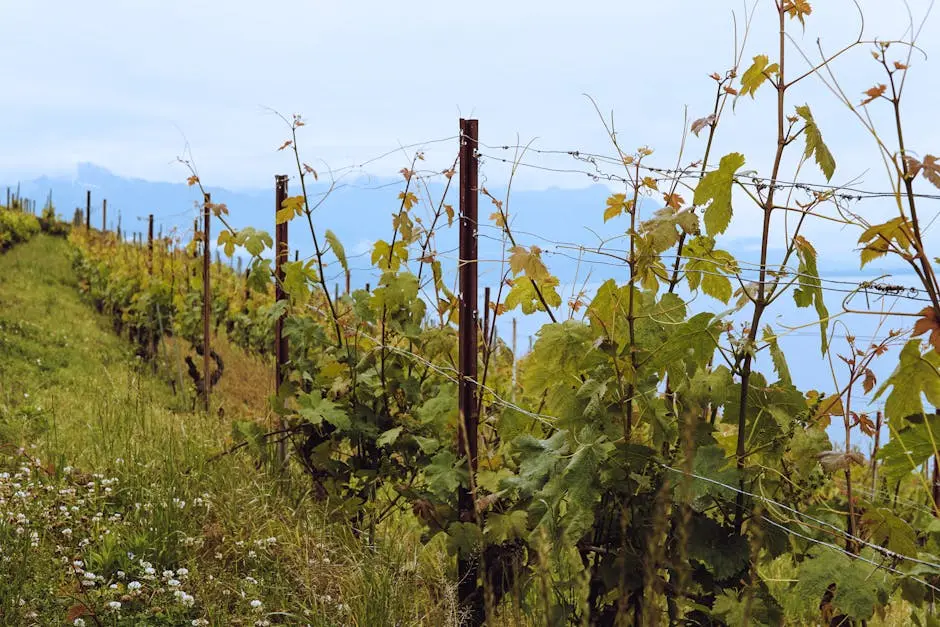Choosing a sustainable wine can be both an enjoyable and environmentally conscious decision. Many wine enthusiasts wonder if Chardonnay, a popular type of wine, can align with sustainable practices. Let’s explore whether Chardonnay can be a sustainable choice for eco-conscious wine lovers.
Understanding Sustainability in Wine
Sustainability in wine involves practices that are environmentally friendly, socially responsible, and economically viable. This includes methods like organic farming, reducing carbon footprints, and using renewable resources.
The concept of sustainability in winemaking isn’t just about adhering to a trend but embracing a holistic approach that benefits the planet and society. For instance, sustainable winemaking practices can encompass water conservation techniques and using recycled materials for packaging. This not only aids in preserving natural resources but also aligns with global efforts to mitigate climate change.
A key aspect of sustainability is supporting the health and biodiversity of vineyards. By refraining from harmful chemicals and integrating natural pest management methods, vineyards not only protect their immediate environment but contribute to healthier ecosystems at large. This practice is essential for reducing the long-term ecological impact of wine production.
Sustainable Practices in Chardonnay Production
Chardonnay wineries can adopt various sustainable practices such as organic or biodynamic farming, water conservation, and energy-efficient processes to reduce their impact on the environment.
At Lecavalier Cellars, we are redefining the wine industry through our innovative winemaking process, which incorporates advanced technologies like robotic automation to foster sustainability. By focusing on reducing energy consumption and enhancing the efficiency of our processes, we are paving the way for a greener future.
Embracing sustainable practices also involves nurturing the grapevines with minimal intervention, allowing them to draw upon the natural richness of their surroundings. This method is not only beneficial to the environment but also enhances the unique flavors and characteristics inherent to the terroir, a principle that’s gaining importance among Chardonnay producers worldwide.
Look for Certifications and Labels
Certifications like Certified Organic, Biodynamic, or Fair Trade can guide consumers towards sustainable choices in Chardonnay. These labels indicate adherence to higher environmental and social standards.
When selecting a sustainable Chardonnay, certifications serve as an invaluable guide. They confirm that the wine has been produced in a manner that respects both the earth and the workers. Whether it’s through Biodynamic methods that enhance biodiversity or Organic certifications that limit synthetic chemicals, each label provides consumers with a deeper assurance of quality and integrity.
Furthermore, keeping an eye out for specific labels not only helps consumers make responsible choices but also encourages more wineries to pursue sustainable certifications, thereby gradually transforming the industry into a more eco-friendly one. The role of informed consumerism is crucial in championing such pivotal industry changes.
Consider Local and Small-scale Producers
Supporting local and small-scale Chardonnay producers can reduce the carbon footprint and encourage more sustainable farming practices. These producers are often more focused on quality and sustainability.
By choosing to support local vineyards and small-scale producers, wine lovers can significantly cut down on transportation emissions associated with long-distance wine shipping. Moreover, these producers often employ traditional and sustainable vineyard practices, prioritizing quality over quantity, which leads to better-quality wines and lower environmental impact.
Local Chardonnay producers often have a direct relationship with their land, which fosters a commitment to preserving their terroir. Local innovations, along with a focus on sustainability, are essential in creating a ripple effect that can inspire larger producers to adopt eco-friendly practices.
How Sustainable Choices Benefit the Environment
Choosing sustainable Chardonnay contributes to environmental benefits such as healthier ecosystems, reduced pollution, and conservation of natural resources.
Environmental benefits of embracing sustainable Chardonnay are manifold. These wines are not only a product of conscious farming but also contribute to maintaining biodiversity, promoting soil health, and curtailing the carbon emissions typically linked to wine production. Supporting eco-conscious vineyards aids in combating larger environmental challenges.
Sustainable Chardonnay producers prioritize practices that lower the overall environmental impact—from using solar-powered facilities to eco-friendly packaging options, each decision is made with the planet in mind. By opting for these sustainably produced wines, you play an integral role in creating a demand for more environmentally responsible wine options.
Conclusion: Making an Eco-Friendly Chardonnay Choice
While not all Chardonnay is produced sustainably, there are many great options out there for those looking to make an environmentally friendly choice. By considering factors like organic farming, eco-certifications, and local production, Chardonnay can indeed be a part of a sustainable lifestyle.



